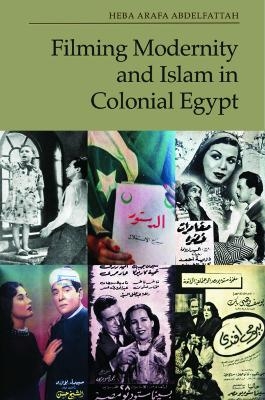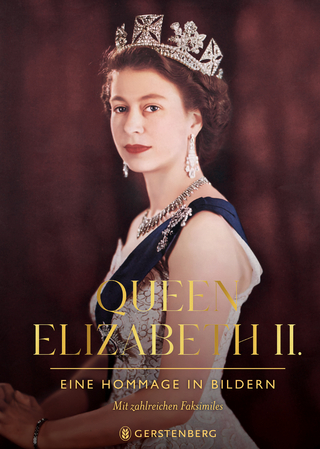
Filming Modernity and Islam in Colonial Egypt
Edinburgh University Press (Verlag)
978-1-3995-2075-1 (ISBN)
Explores the formative years of Egyptian cinema (1919 52) to contest the contradiction between Islam and innovation
Discusses over 30 feature films, drawing on English and Arabic archival material including records of the British Foreign Office, the Egyptian National Archive, diaries of filmmakers and film censors, magazines and newspapers, and Islamic legal opinions on theatre and cinema
Sets out a dialogic and innovative approach to studying modernity and Islam as interdependent lived experiences
Steps outside the Orientalist formalist approach, which subjects subaltern cinema to the Hollywood standards of film language
Writes a compelling account of Egyptian cinema as creative imagination and an Islamic popular culture shaped by Muslims and Non-Muslims
This book studies the rise of cinema in colonial Egypt as a supplemental secular public sphere that is not anti-religion. To this end, it investigates the reception of film by three centres of powers: the colonial authorities, the Muslim clergy and the Cairene bourgeoisie. It inquires about the representations of modernity in films produced during the time and the place filmmakers assigned to Islam in these representations. The result is a story of survival and coexistence told through the lens of cinema as modern art and popular culture negotiating its overt and covert censorship in the public sphere, despite colonisation and war.
Dr. Heba Arafa Abdelfattah is a Postdoctoral Fellow and Lecturer of Religious Studies in the Institute of Sacred Music & the Department of Religious Studies at Yale University. She graduated from Georgetown University in the Department of Arabic and Islamic Studies. She was a visiting assistant professor at Georgia Institute of Technology, Atlanta, GA, and a research fellow at the Aga Khan University Institute for the Study of Muslim Civilizations, London, UK. Dr. Abdelfattah's research interests and expertise range from classic religious texts, including the Qur'an and Prophetic tradition (Hadith), to modern Arabic literature, film, and popular culture. She is interested in Islamic thought in all its expressions from the 7th to the 21st centuries. She works with sacred scripture, literary texts, archival documents, films, and artistic production to understand questions of creativity and creative experiences at the intersection of discourses of Islam and modernity. Her articles appeared in such peer-reviewed journals as Religions, the Review of Middle East Studies, the International Journal of Communication, and the Journal of Islamic and Muslim Studies (JIMS). Dr. Abdelfattah also serves as a board member for the North American Association of Islamic and Muslim Studies (NAAIMS) and a film review editor of the Journal of Islamic and Muslim Studies (JIMS).
| Erscheinungsdatum | 13.10.2023 |
|---|---|
| Zusatzinfo | 136 B/W illustrations 136 b&w illustrations |
| Verlagsort | Edinburgh |
| Sprache | englisch |
| Maße | 156 x 234 mm |
| Themenwelt | Kunst / Musik / Theater ► Film / TV |
| Geisteswissenschaften ► Geschichte ► Regional- / Ländergeschichte | |
| Sozialwissenschaften ► Kommunikation / Medien ► Medienwissenschaft | |
| Sozialwissenschaften ► Soziologie ► Spezielle Soziologien | |
| ISBN-10 | 1-3995-2075-X / 139952075X |
| ISBN-13 | 978-1-3995-2075-1 / 9781399520751 |
| Zustand | Neuware |
| Informationen gemäß Produktsicherheitsverordnung (GPSR) | |
| Haben Sie eine Frage zum Produkt? |
aus dem Bereich


